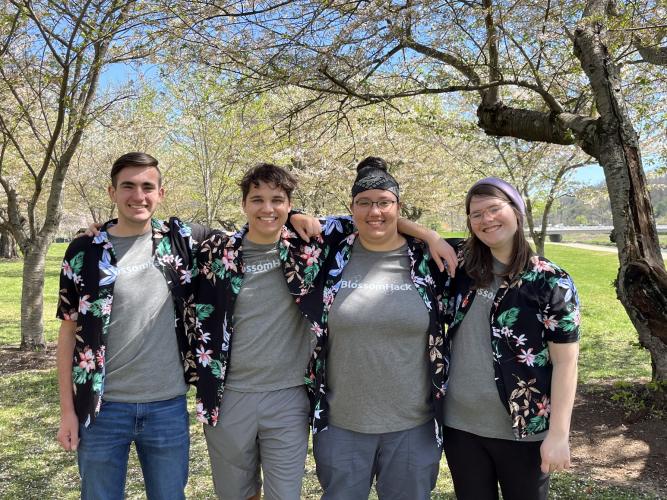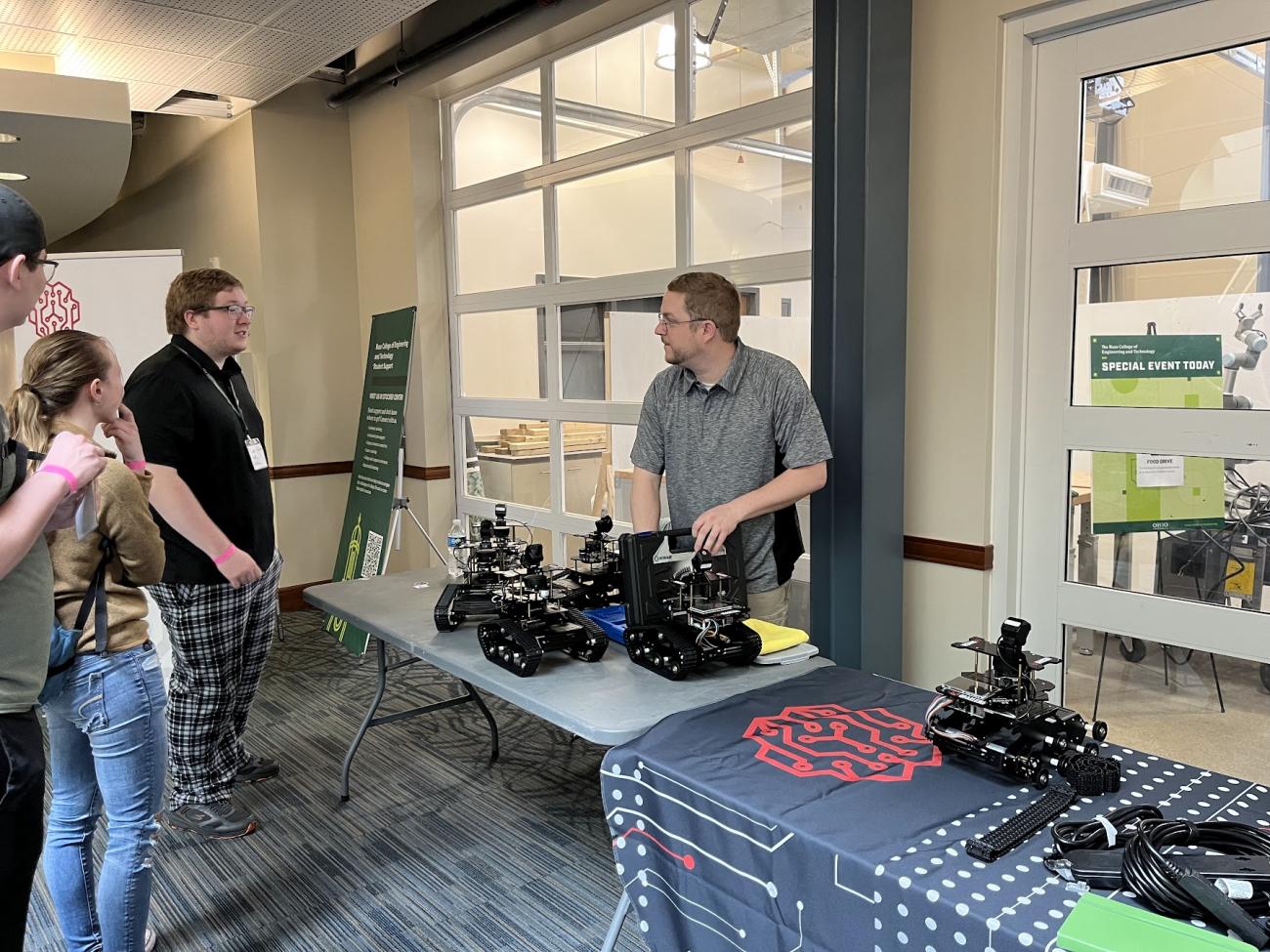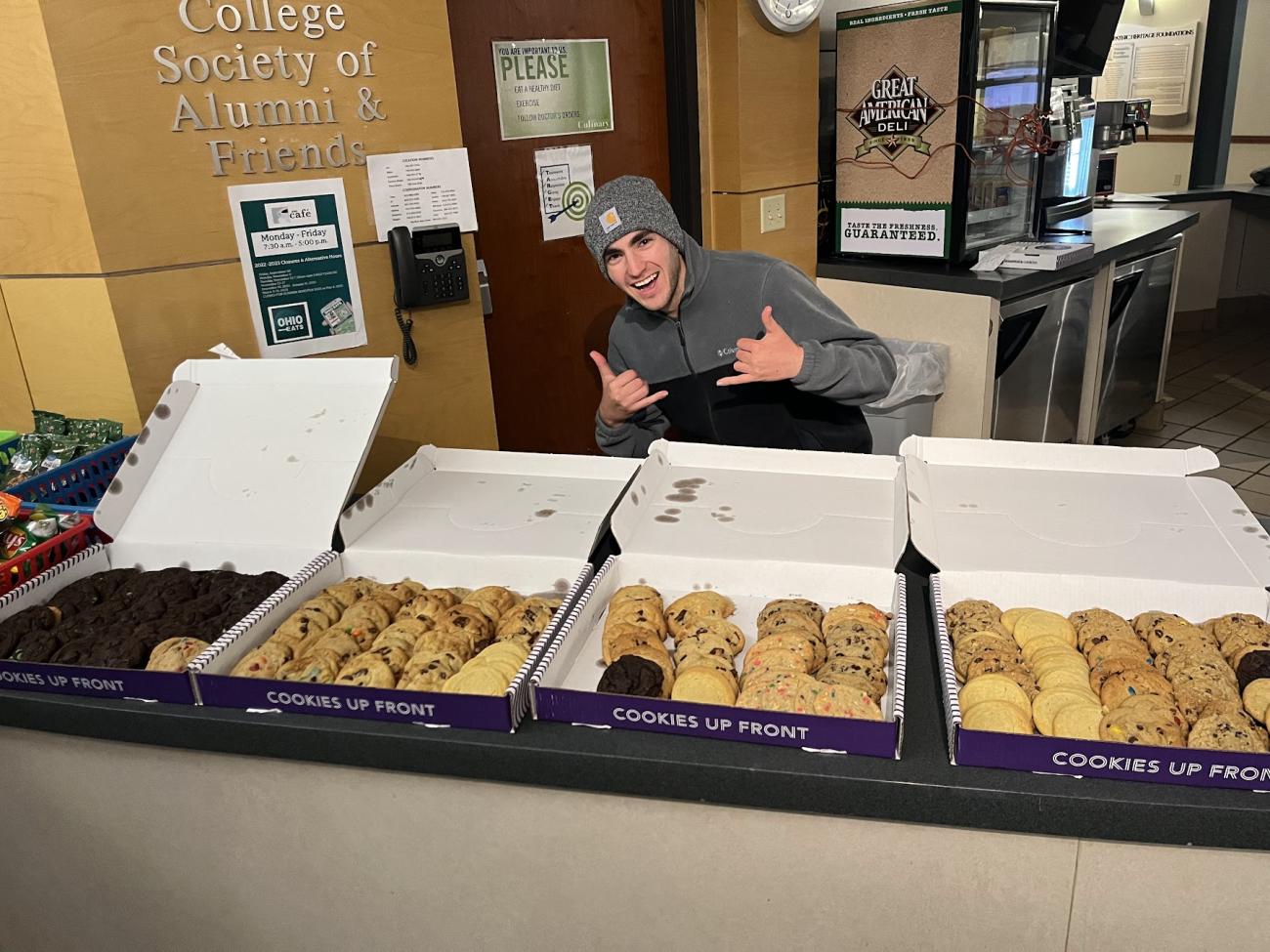
Four Russ College students plan BlossomHack, a regional coding competition

For Alex Williams, senior computer science student, BlossomHack, a hackathon hosted at Ohio University, was always the end goal. Williams hosted smaller cybersecurity competitions called Capture the Flag events (CTFs) in the fall and spring of 2022 and attended a conference to learn more about hosting hackathons, large-scale coding competitions that incorporate multiple events, often including CTFs.
“Hackathons are a fantastic learning experience. Students can come and work on a pet project they have been meaning to get to or something new they just came up with. For the most part, hackathons are completely open-ended for what the projects could be. They are also completely free for the attendees so there is no financial barrier,” said Williams.
When Williams shared the idea with fellow students Justin Garey, Natalie Soltis and Drew Mullett, they were all on board to create a large-scale regional event in which students interested in coding from both OHIO and neighboring universities could compete with one another. Together they planned a robust event, collaborated with various student organizations and laid the groundwork for the event to be replicated for years to come.
“Besides participating in the contest, the planning committee did an excellent job demonstrating leadership getting everything together,” said Chad Mourning, assistant professor in the School of Electrical Engineering and Computer Science and a judge for BlossomHack.
“My biggest point of pride is that the majority of the coordination and organization of this event was completed by four students. We brought together five student organizations to make this thing happen and did it well enough to attract students from other schools,” said Williams.
The BlossomHack team collaborated with the student chapters of the Association of Computing Machinery, Institute of Electrical and Electronics Engineers, National Society of Black Engineers, Society of Women Engineers and Ohio University Game Development Association to bring the event to life. They also secured external sponsorship from AI Futures, which helped them to overcome the financial hurdle of planning a large event.

Overall, there were 67 participants and eight competition categories in which students of varying skill levels could compete, including hardware, game development, diversity and education, sustainability, beginner and low tech, cybersecurity and best overall. Additionally, there was a ground vehicle challenge sponsored by AI Futures.
“The events we hosted during BlossomHack included workshops such as ‘How to Make a Game in 40 Minutes,’ ‘Getting Started in Hardware,’ and ‘Intro to Amazon Web Services.’ We also did events to give participants a break, like a Wikipedia race and an Easter egg hunt,” said Soltis.
Each of the events were designed by the student planners, which required the students to understand how to craft events that were accessible to participants with varying skill levels. Additionally, each student planner has pursued their own specific interests in their undergraduate coursework, so even though a student may not have experience in cybersecurity, they had to plan an event that was centered around cybersecurity. This created opportunities for the student planners to immerse themselves in new topics within computer science and challenge themselves to overcome any knowledge barriers that may have existed prior to designing the event.
“The initial rush and excitement as kickoff ends and everyone grabs on to an idea and goes all-in on it is something I've always loved about these sort of events. The energy, adrenaline and enthusiasm in the air is both infectious and addicting,” said Soltis.
“I’m most proud of how well the event ran and how we were able to work together. We were quick to respond, and all worked very hard to make this event a reality,” said Mullett.
Coding is a vast discipline that is often a self-directed learning experience. Students learn fundamental skills in their computer science coursework, but honing their skills in a particular coding language requires hands on practice and application outside of the classroom. Hackathons help to create opportunities for students to explore their interests in different coding languages and on different project types.
“[Hackathons are important because] there are lots of interesting technologies out there that aren't used in our classes — this is a great excuse to try some out and see how they work. I always tell my students that if the only thing you do by the time you graduate is pass your required classes, you've done a strict subset of what everyone else is doing, and you can't expect to compete for the best jobs,” said Mourning.
“Hackathons are important for students because it gives them an environment to learn and grow their skills as well as gain new ones,” said Garey.

Given the group’s success in hosting a dynamic coding event and constructing an enviable snack bar — a rite of passage for any memorable hackathon — the team plans to continue BlossomHack for years to come.
“BlossomHack will, in fact, return! The focus generally will be on expanding the reach of the event and setting students and sponsors up with bigger, better and more connections,” said Soltis.
